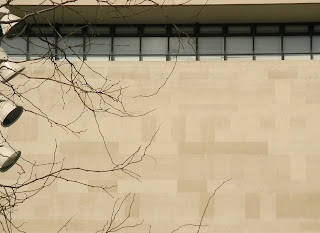
Hah! Helvetica again I see, on the right… 1969, a Methuen Modern Play (great series). I'm getting more and more allergic to that typeface. I've just noticed after 40 years (or however many) that it’s what the National Theatre uses and must be part of the reason I feel so little love for that institution. But more of that another time – the National Theatre has nothing to do with my experience of those plays.
I never saw The Fire Raisers but have had the book around since I bought it for, apparently, ‘7s. 6d. (37½ p)’ and have just re-read it in a brief orgy of returns to plays that I saw and read years ago and still have copies of. From Penguin Plays, Three European Plays, 1958 (2/6) I've read Ring Round the Moon by Jean Anouilh and The Queen and the Rebels by Ugo Betti. I skipped Sartre’s In Camera (Huis Clos) because I've kept going back to him in the intervening years. Then onto Max Frisch, The Fire Raisers.
The Anouilh and the Betti I saw (certainly the former) at the Bradford Civic Playhouse when I was still at school; probably the Sartre as well and some Giroudoux. ‘Playhouse’, note, not ‘Theatre’ which I've been calling it in earlier postings: I just thought of looking to see if they have a website. Not only do they and it gives me the right name but it has lists of productions from 1947; only for certain years, though, unfortunately, and not the ones I’d like to look at. (I also gather the theatre has been through vicissitudes over the years, is currently ‘The Priestley’ and is in administration pending relaunch as the Bradford Playhouse. Good luck to them.)
The productions were amateur and I suppose crude but had a powerful effect on me as a teenager who had no other experience of theatre. The way the lighting created dawn through the French windows over some desultory party-goers too exhausted to get themselves to bed or through the bars of a prison cell in some desperate central European police state was magical. And the plays, even when lightweight (Anouilh) were elegant, intelligent and interesting. They made the Continent seem so much more exciting than the tatty and tacky Britain of the 50s – a point confirmed by the stuff I've been reading about that period: Colin MacInnes [check MacInnes label in the right hand margin] and now Kenneth Allsop’s The Angry Decade (free from Amazon, virtually, apart from £3 postage – and thrown out by Leeds University, I note. Right.)
About The Fire Raisers, first produced in Zurich in 1958 and at the Royal Court, London, in 1961:
The fire raisers are a secret group who go around the town starting fires. A couple of them move in on a bourgeois family and made no secret of the fact that that’s what they are but the businessman father (Biedermann) finds it more comfortable to convince himself they’re joking as they fill his loft with drums of petrol and ask him for matches. It’s stylish and funny as well as sinister. I especially like the Greek chorus of firemen:
CHORUS
Ready are we,
Carefully coiled are the hoses,
In accordance with the regulations,
Polished and carefully greased and of brass
Is each windlass.
Everyone knows what his task is.
CHORUS LEADER
An ill wind is blowing –
CHORUS
Everyone knows what his task is,
Polished and carefully tested,
To make sure that we have full pressure,
And likewise of brass is our pump.
CHORUS LEADER
And the hydrants?
CHORUS
Ready are we….
And here’s a sample couple of pages – wonderful stuff, and quite unlike anything being done in the Britain of the ineffectual Angry Young Men and the prosaic Kitchen Sink (click to enlarge):








